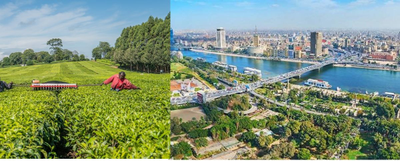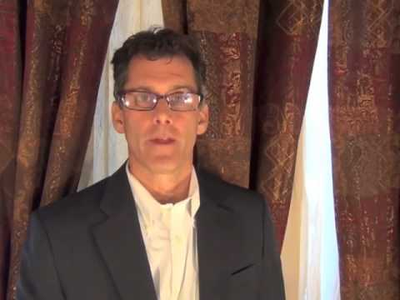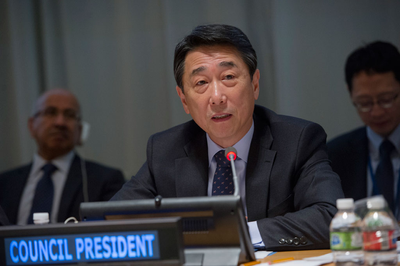African-based companies and their race towards sustainability
A Case for Definition
Globally, practitioners and stakeholders have all come to terms with the fact that the achievement of the sustainable development goals (SDGs) will also be hinged primarily on the efforts of the private sector. This fact is also endorsed going by the outcome document of the Third International Conference on Financing for Development (Addis Ababa Action Agenda). The Part B (Domestic and International Private Business and Finance) of the entire document is dedicated to efforts that will go into harnessing the power inherent in private enterprises. The International Business Forum during the conference acclaimed as the largest ever global gathering of high-level business leaders in the development context gave a voice to enacting a model that connects with development in a sustainable way.
In its practicality, what does sustainability mean for African-based enterprises? While sustainable development and sustainability are synonymous, there is a need to practically demystify the complexities surrounding the definition if progress is the core focus. Sustainable Development (SD) as defined by UN Brundtland commission says “sustainable development is development that meets the needs of the present without compromising the ability of future generations to meet their own needs.” This is a widely accepted definition across board. The major pillars embedded in the sustainable development goals cover the Economic, Social and Environmental fabrics. Highlighting the pillars of sustainable development is critical because this forms the bedrock to what sustainable practices should mean for private businesses. The real idea here is not for private enterprises or corporations to solely scale up the traditional form of philanthropy vis-à-vis corporate social responsibility (CSR). The challenge is for businesses to grow into a new form of inclusive and social ventures. Emphasis is placed on “growth” because such transformation will not be automatic or drastic within organizations.
A Case to Advance Beyond ‘just doing good’
In order to pursue sustainability, African-based organizations have to build capacity to understand and then track their sustainability progress. This is founded on the premise that economic growth must align with social and environmental considerations. Simply put, it is not good enough to create jobs through a private enterprise if the environment and the social space within the territory are victimized. A follow up thought which is more relevant to many private organizations in the business of “doing good” (a form of CSR) is to mind the gap associated with their good deeds. Sustainability in every sense means entrenching sustainable practices within the business models and guiding philosophies of the business. If an organization negatively impacts the livelihood of people where they operate in, but reciprocates gestures such as painting a block of classroom within a community as a form of corporate social responsibility, can we say that such organization is actually corporately responsible? Your guess is as good as mine! True corporate social responsibility is an offshoot of sustainability consciousness. We cannot claim to be sustainability driven while wreaking havoc on any of the pillars that reflects sustainable development.
A Case for Business and Real Growth
It is imperative that African organizations also get a good grasp of understanding the business case entrenched in the values of sustainability. In the world today, doing well (making more profit) is predicated on doing good (embracing sustainability practices). The World Business Council for Sustainable Development (WBCSD) which is in the frontline in helping businesses align with sustainability practices argue that there is a business case for sustainable development asides moral, ethical , religious and environmental justifications. In the organization’s report tagged ‘The Business Case for Sustainable Development – Making a difference toward Johannesburg Summit 2002 and beyond – “, the torch was also focused on the financial bottom line! During the five years that preceded August 2001, the Dow Jones Sustainability Index (DJSI) clearly outperformed the Dow Jones Global Index (DJGI). While the DJSI had an annualized return of 15.8 %, the DJGI increased by 12.5 % in that period. What was a major factor that contributed to DJSI’s financial leap? The DJSI consists of the top 10 percent of companies in 68 industry groups in 21 countries seen as leaders in sustainable development.
Having sustainability models entrenched within African corporates cannot be overemphasized. The “Africa Rising” meme on the premise of industrialization and a growing private sector has not had as much positive impact as one would have expected. Perhaps, we could start by explaining how countries such as Chad, Ivory Coast and Sierra Leone which posted growth rates at over nine percent in 2012 all found themselves among the bottom 20 countries in the Human Development Index (HDI) according to the United Nations in areas such as education, health, life expectancy, health, per capital income and inequality among others. This reality further places a greater responsibility on the private sector to see beyond mere statistics of growth to other salient parts of the economy affected by their operations.
A Case for Reporting and Ratings
We cannot sufficiently monitor progress relating to sustainability without having a form of defined standards to measure and track these set of development stakeholders (African private organizations). Historical events elaborates this clearly with various illustrations traversing from the issues emanating from Nigeria regarding the Niger Delta and Oil producers such as SHELL to Marikana in South Africa relating to Lonmin. Many of such social injustice and environmental degradation accompanied by pressures from various NGOs have definitely placed a demand on companies to make public their sustainability performance. Many companies have shown their seriousness in pursuing sustainability with the creation of departments within their organizations to focus on sustainability issues. Without mincing words, the reality is that most companies (sustainability managers) are still ‘sincerely oblivious’ to what the sustainability agenda entails. The issues surrounding the reporting and ratings is by no means the responsibility of the companies alone. Clear-cut strategies, style and a definition of ‘who’ exactly decides the sustainability agenda must be spelt out perspicuously. While international development organizations, foreign/local investors, local NGOs and government agencies are pressure spots to trigger the compliance to the sustainability agenda, the sector is in dire need of more structured systems to lessen the complications on its reporting system.
A Case for Sustainability Partnership
According to the Africa Sustainability Barometer after reviewing the annual reports of over 1,000 companies in the continent, it was found that metrics associated with sustainability data were dispersed and had some form of bias in the reporting structure. Efforts from organizations such as the Africa Development Bank (AfDB) are commendable within the continent. The bank leverages on the Environmental and Social Management (ESM) tool to get clients of the bank adopt the sustainability agenda. This has definitely spurred more awareness and strengthened the acceptance of sustainability. One can argue that a major reason for the level of success is because such practice will result into getting more support in form of finance from the bank by their clients. Nevertheless, another major truth is the power of partnerships embedded in the industry. Private or independent sustainability consulting firms across the continent have become the bridge to helping companies make this transition as smoothly as possible. Having worked with such sustainability organizations in Africa, I very much understand that there is little or no excuse for companies to feign ignorance in adopting the sustainability culture. In supporting this partnership need, Marco Albani and Kimberly Henderson (expert and consultant at Mckinsey) both elaborated this brilliantly in their piece about ‘Creating partnership for Sustainability’.
With the help of such independent sustainability consulting organizations, we can begin to eliminate the bottlenecks associated with sustainability reporting within African companies. As Ernst and Young aptly puts this in a 2013 report: “Integrated reporting leads to integrated thinking”.
Finally, companies in Africa need to see that the sustainability agenda is not a leakage within their financial purse – a point worth re-emphasizing. On the contrary, it is another way to preserve and increase profit. BASF – the world’s leading chemical company affirms that their strategic commitment to combining economic success with environmental protection and social responsibility has promoted not only their sustainability relations but also expanded their investors’ network. With a clear understanding of what sustainability entails and a dogged commitment to pursue it with relevant partnerships, African companies can reposition the continent on a path towards sustainable development while delivering the true dividends associated with growth.
Photo credit: © Sam 72/Shutterstock via IUCN



